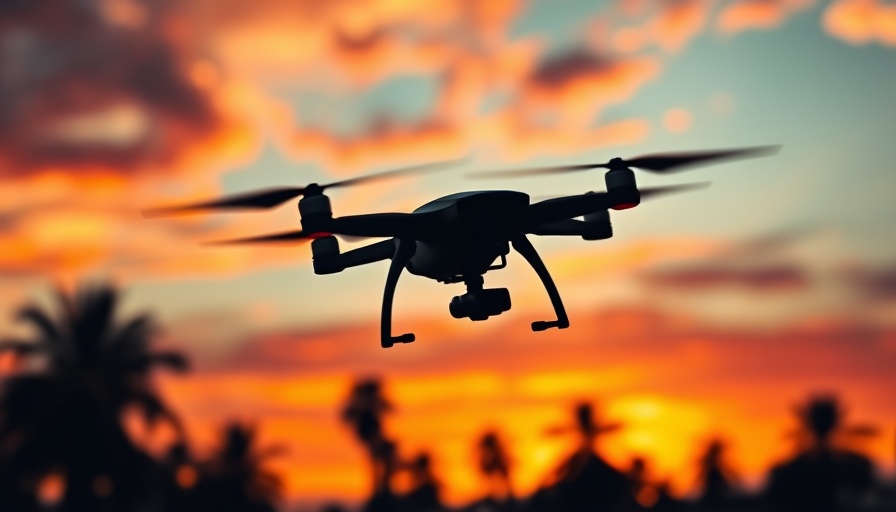
The Unseen Repercussions of Banning Chinese Drones
The debate surrounding the proposed ban on Chinese-made drones is heating up, but often what gets lost in the discussions are the voices of the individuals who rely on these tools for their livelihoods. Michael Thompson, a drone pilot and founder of Connecting Skies, LLC, emphasizes that the issue extends beyond national security; it poses significant risks to small businesses and everyday operations.
The Drone Economy: More Than Meets The Eye
While military applications dominate the drone market, small businesses—ranging from farmers to infrastructure inspectors—eagerly embrace drone technology to enhance operational efficiency. Precision agriculture, utility monitoring, and real estate inspections all depend on drones for tasks that demand accuracy and speed. The reality is that many of these businesses view drones not as luxuries, but as essential tools in their daily operations.
The Ripple Effect: Disruption to Business Operations
Should a ban on Chinese drones be enacted, the impact will be felt swiftly and broadly across sectors that rely on these devices. Many small businesses could face service delays or complete shutdowns. For instance, companies like IFLYDRONES.COM already report challenges in obtaining replacements and spare parts. Business owners are voicing concern about their futures, fearing that diminished supply chains will hurt their operations and reputations.
Economic Fallout: Real Cost of the Ban
The economic implications of banning Chinese drones extend beyond individual companies. The disruption to supply chains could stifle innovation, particularly in AI development, where aerial imagery is an invaluable resource. Companies like Skycatch, which convert drone-collected data into actionable models, may find themselves impeded in their growth and contributions to crucial industries, electronic health records, and resource management.
Understanding the Broader Landscape: From Local to Global
As discussions rage on Capitol Hill, it's vital to remember the broader landscape affected by these political decisions. The ramifications won't only hinder American businesses; they can shift the entire drone market, potentially leading to patterns of reliance on drone manufacturing from countries with less rigorous safety and environmental standards. Therefore, a strategic approach to the drone industry should encompass not only national security but also economic viability and technological progress.
Empower Your Business: Navigate the Uncertain Future
For businesses dependent on drones, now is the time to evaluate alternatives and build relationships with alternative suppliers. Engaging with local manufacturers and advocating for fair policies can be instrumental in shaping a resilient drone ecosystem that supports both innovation and safety for all.
With the potential ban generating debate, everyone from policymakers to drone enthusiasts should consider how these changes might ripple through the economy. Being informed and proactive is essential.
As we navigate this uncertain landscape, it's crucial for businesses and individuals to stay informed about changes and continue advocating for solutions that will benefit the broader drone community.
 Add Row
Add Row  Add
Add 




Write A Comment